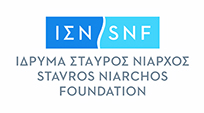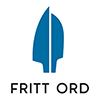
LONDON - Four media in three countries united to research a company, that was registered in the two of them and active in the third. When a court injunction prohibited media in one country to publish, a report revealing more about the dangerous waste could be published in one of the other countries.
Cross-border research done in a cooperation between British Guardian and BBC, Norwegian TV NRK and Dutch daily Volkskrant helped to get the story out.
In 2007 an explosion happened in Norwegian town of Songstad. That got reporters two reporters on the trail of highly dangerous waste trade. If there had not been a fire, there most likely would have been developed gasses fatal to the inhabitants. In September they could reveal a report indicating that the company knew about the dangers. And they published the report on the NRK website.
Previously the same company had tried to land the waste in the Netherlands and was rejected, later it was shipped to the Ivory Coast, according to coverage by the Guardian.
The September revelation that the company must have been aware of the dangers and that indeed it had offered to pay damages to a claim by 31.000 African victims through the cooperation could be published simultaneously in the three countries.
BBC, Guardian, NRK, Volkskrant (not available)
Yet after the journalists contacted the company for comments on the report, the Guardian received a court injunction.
In October an absurd situation occurred: Because the Guardian was not allowed to mention the case, it was prevented from reporting from the British parliament, where a parliamentary question concerned the issue.
Today's published Commons order papers contain a question to be answered by a minister later this week. The Guardian is prevented from identifying the MP who has asked the question, what the question is, which minister might answer it, or where the question is to be found.
The Guardian is also forbidden from telling its readers why the paper is prevented – for the first time in memory – from reporting parliament. Legal obstacles, which cannot be identified, involve proceedings, which cannot be mentioned, on behalf of a client who must remain secret.
The only fact the Guardian can report is that the case involves the London solicitors Carter-Ruck, who specialise in suing the media for clients, who include individuals or global corporations.
- Guardian October 12th 2009
The company also had tried to stop NRK. But NRK chose to publish including a link to the debated report, e-mail correspondence and the injunction against the Guardian.
A day later this particular part of the injunction was lifted by the lawyers of the company, and the Guardian could again publish all news from the British parliament.








